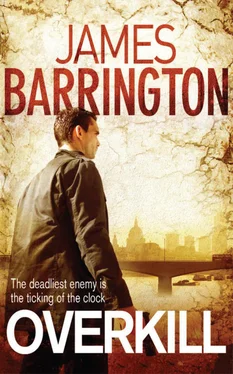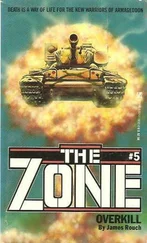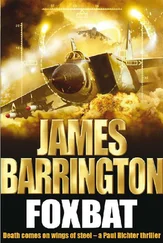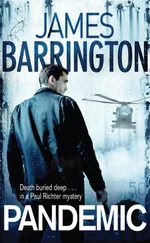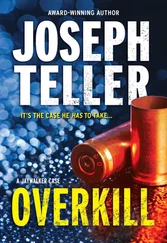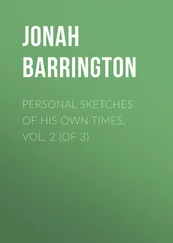Karasin turned white. ‘What?’ he almost shouted, and stood up, protocol forgotten. ‘What? What do you mean – assault?’
‘I cannot be any more specific, Mr Ambassador,’ the President said smoothly, motioning Karasin back to his seat, ‘but we do have the information.’
The Russian sat down, slowly, his eyes never leaving the American’s face. ‘Mr President,’ he said, ‘I have no knowledge, no knowledge at all, of any such operation. The suggestion is—’ he searched for a word ‘—is simply monstrous. Relations with your country have, I believe, never been better. Why would we risk any conflict now?’
‘Why indeed, Mr Ambassador?’ the President said. ‘Nevertheless, that is the information we have.’
Karasin looked stunned. He shook his head and got to his feet. ‘I must take advice,’ he said. ‘Urgent advice. In the meantime, Mr President, I must urge you, in the strongest possible terms, to do nothing which would exacerbate this situation.’
The President looked at him. ‘We will do nothing that we do not need to do,’ he replied, ‘but this situation is, we believe, entirely of your country’s own making.’
Karasin shook his head. ‘I know nothing of this,’ he repeated. ‘Nothing. Thank you, Mr President. I will contact you as soon as possible.’ The Russian shook hands briefly, and walked briskly out of the room.
‘Well?’ the President asked.
Walter Hicks, who had been sitting silently at the back of the room facing the long windows throughout the meeting, rose and walked slowly towards the President’s desk. ‘You know him much better than I do, sir,’ he said. ‘What’s your impression?’
The President sat down again, this time behind the desk. ‘I’ve known Karasin for three years,’ he said. ‘Normally, he’s the model of diplomacy, never a word out of place. I’ve never seen him like this before. If I didn’t know better,’ he finished, the words coming slowly, ‘I’d say he doesn’t know anything about it.’
Orpington, Kent
Vladimir Illych Orlov was the possessor of a diplomatic passport and was officially Third Secretary at the London Embassy of the Confederation of Independent States, with special responsibilities for Cultural Exchange and Industrial Development. Third Secretaries, generally, are pretty low on the pecking order at most embassies, but Orlov lived in a large house with a bodyguard and chauffeur, and was regularly to be seen at important Embassy functions, where he was treated with marked deference by everyone from the Ambassador downwards. The reason was simple enough – Orlov was a full colonel in the SVR, and was head of the large staff of SVR officers employed in the Embassy. He also ran at least three separate and distinct spy rings – mostly comprising low-grade sources in industry and the fringes of the military – that SIS knew about, and probably others as well.
He was quite literally the most powerful Russian in Britain, and FOE had a dossier an inch and a half thick on him at Hammersmith. Richter knew that talking with him wasn’t going to be easy. There was a clip of photographs of the house in the file. It was detached, surrounded by thick hedges and a brick wall on the side of the property adjoining the road, with double gates, electrically operated with remote control switching both from Orlov’s official car and from the house itself. All the downstairs windows were barred, and the doors front and rear were lined with steel. It was not, Richter knew, a tempting place to crack.
He pulled the Honda into the side of the road a hundred yards or so from the house and switched off the engine. He pulled the bike on to its stand, removed the ignition key, secured his helmet to the lock below the seat, switched off his mobile phone and started walking. It was a fairly bright night, the moon only occasionally vanishing behind clouds, which was more or less what he wanted. Richter didn’t anticipate that anyone in the house would be awake, and the moonlight would certainly help him avoid falling into any ditches or other obstacles Orlov might have strategically or accidentally positioned in the grounds.
He felt the brickwork on the top of the wall, but could find no trace of glass, barbed wire or, more importantly, any indication of an alarm system. He checked the road carefully in both directions, then pulled himself up and dropped down on to the lawn on the other side. He removed the haversack, opened it and transferred the glasscutter, torch and adhesive tape to pockets on his leather jacket. Then he pulled down the jacket’s zip so that he could reach the Smith and Wesson easily, pulled on the rubber gloves and moved off.
Richter kept to the edge, near the hedge, all the way, keeping his eyes on the house and looking and listening for any sound of movement. There was a light burning downstairs in the hall, which he could see through the narrow vertical windows either side of the front door, and another upstairs, but no lights were visible in any of the bedrooms. Richter made three complete circuits of the house before he was satisfied.
It was a substantial red-brick property, as an estate agent would have described it, and the bars on the ground-floor windows would certainly have given Richter peace of mind if he’d been thinking of buying it. With his present intentions in mind they were, at best, a nuisance. The first floor looked a good deal more promising, with no bars as far as he could see, and a balcony area at the rear of the house, above a bay window.
Richter thought briefly about the best entry point, and decided that the balcony was it, as long as he could get up on to the top of the bay. There were no convenient creepers or ivy – Richter would have been surprised if there had been – so he looked around behind the garage and the shed at the rear of the house for a ladder or anything similar. He didn’t find a ladder, but he did find a warped twelve-foot scaffold plank, presumably discarded after some work on the property. Richter examined it carefully, but apart from the twist in it there were no other obvious signs of weakness, so he carried it out from behind the garage to the house. He rested one end on the top of the bay and jammed the other into the soil of a flowerbed adjacent to the wall.
Then he started his ascent. The plank had looked steady enough when he had put it in place, but with Richter’s weight on it, it wobbled enough for him to be very glad of the wall on his left-hand side. He hoped he would be able to leave by the front door.
On top of the bay, he looked cautiously through the window with the aid of the torch. There was a large double bed against one wall with blankets neatly folded at one end. Richter could see a wardrobe, three chairs and a dressing table, but nothing that suggested that the room was anything other than what it seemed – an unoccupied spare bedroom. The window was double-glazed and the catches closed, but that was what he had expected.
Richter took the roll of sticky tape and pulled a length of about a foot off it. This he stuck on to the window pane next to the catch, after doubling the centre four inches of the tape, so that he ended up with eight inches of tape stuck to the glass with a ‘handle’ about two inches long in the centre of it. Then he took the glass-cutter and described a circle around the tape, big enough to get his hand and arm through. He ran the cutter round twice in the groove, then replaced it in his pocket. Holding the tape firmly in his left hand, Richter gave the glass a sharp rap with his right fist. There was a splintering sound, and the circle slid inwards. Carefully he brought the circle of glass outside, and placed it flat on the top of the bay.
Richter repeated the operation on the inner pane and placed the second circle of glass on top of the first. Then he slid his right arm inside, and felt all the way round the opening section. If there were any wires, he didn’t feel them, so he slowly released the catch and gently pulled the window open.
Читать дальше
